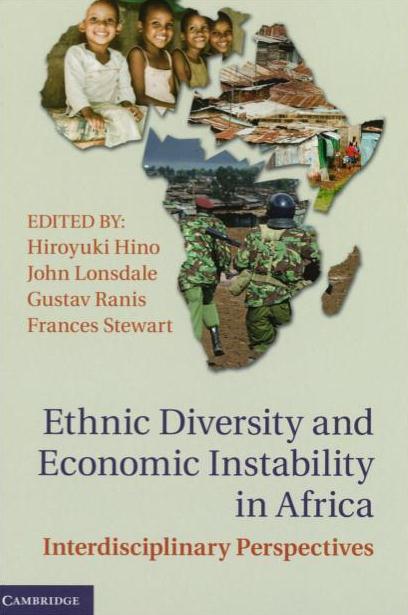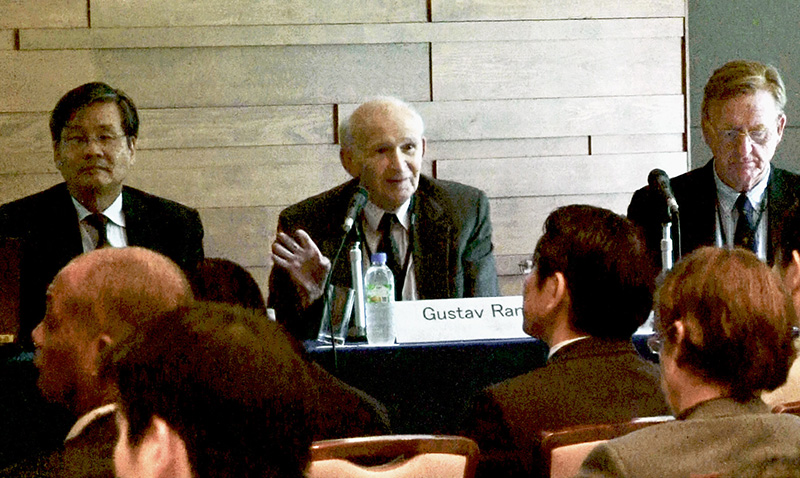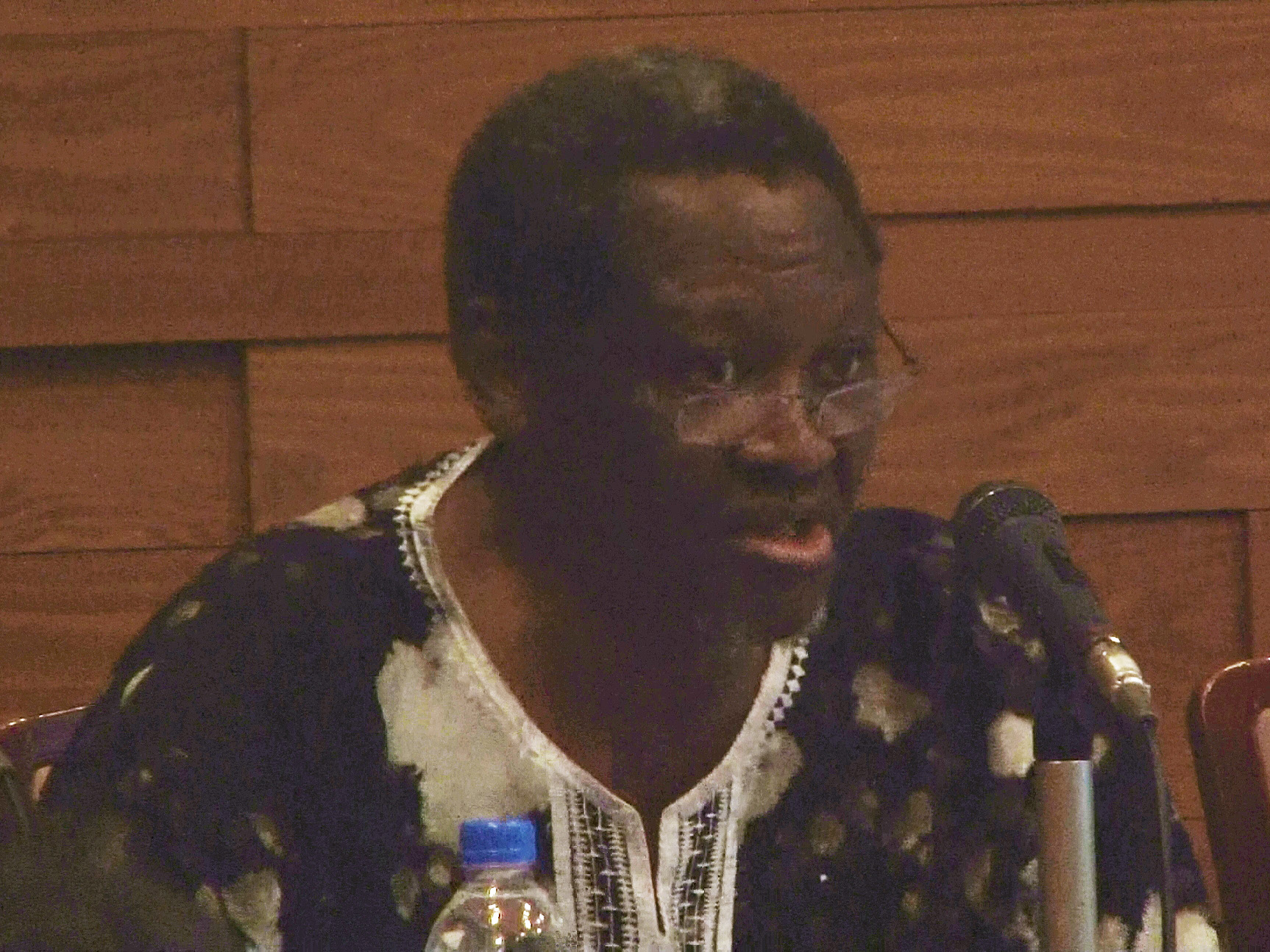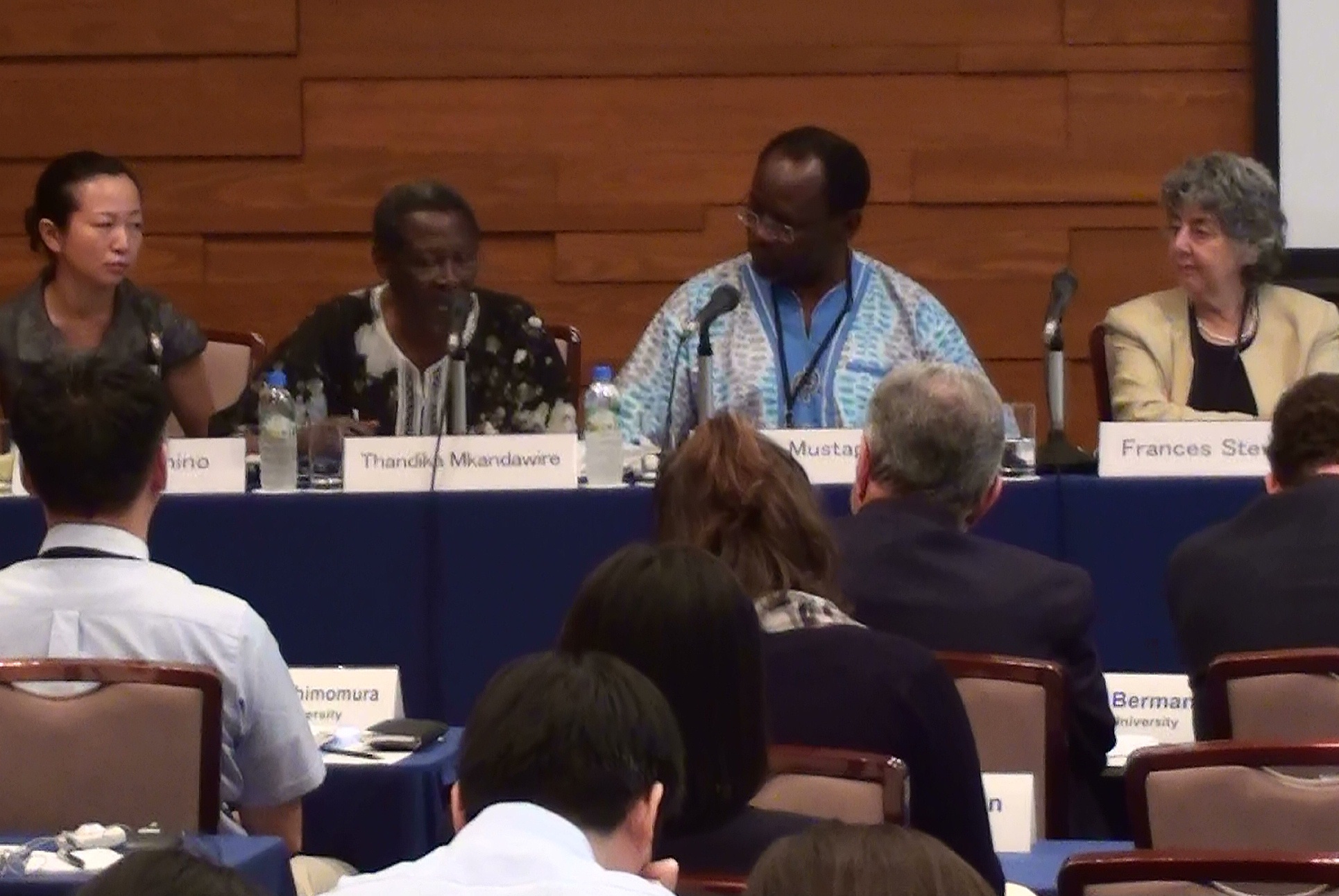JICA-RI and Kobe University co-hosted a symposium for a launch of the book "Ethnic Diversity and Economic Instability in Africa"
2012.08.13
On July 25, JICA-RI and Kobe University have jointly hosted a public symposium at the International House of Japan, Tokyo, to commemorate a launch of the book titled “Ethnic Diversity and Economic Instability in Africa: Interdisciplinary Perspectives,” a compilation of the achievements of a collaborative research project.
This symposium aimed at introducing the book based on the research outcomes on “Ethnic Diversity and Economic Instability in Africa,” part of JICA-RI’s research area “Growth and Poverty Reduction” which the Institute has been working on since its foundation in 2008. Together with the book introduction, the implications for the policy and institutional reform to resolve or ameliorate factors that cause economic instability in Africa were presented.


Prof. Hiroyuki Hino (left),
Prof. Gustav Ranis (center),
Prof. John Lonsdale (right)
Researchers from a wide range of academic fields such as economics, politics, cultural anthropology and history participated in this research project, headed by Professor Hiroyuki Hino of Kobe University who is currently served as Economic Advisor to the Prime Minister of the Government of Kenya. The participants have been engaged in an exhaustive study of the negative correlation between ethnic diversity and economic growth in Africa, along with seeking measures to achieve economic growth in multi-ethnic African societies. This book was published as the first volume of the research results from Cambridge University Press on July 12.
At this project, JICA-RI previously held four collaborative workshops: Kobe in Japan, Yale in the U.S., Naivasha in Kenya, and Oxford in the U.K. The fifth and last workshop was held in Tokyo on July 23 and 24, and the outcomes of this workshop were included in policy implications at this symposium.
In the first part of the symposium, four editors including Professor Hino outlined the book, followed by the comments from the three specialists in the field of African economic development.
Professor Emeritus Gustav Ranis of Yale University, who oversaw the introductory chapter, listed factors contributing to economic instability in Africa: low population density, the unequal distribution of natural resources, trade fluctuation and frequent regime change. He addressed, “It is important to allocate export revenues from natural resources for infrastructure in order to benefit both formal and informal sectors, to boost economic activities, and finally to overcome lack of trust among groups.”
Professor Emeritus John Lonsdale of Cambridge University emphasized, “Ethnic diversity itself is not a problem but is strength as human resources.” Tracing the history of ethnic groups and states from colonial days up to the present, he pointed out that ethnic conflicts intensified as poverty increased. He also referred to new problems, such as population flow from farming villages to cities and confrontations over land ownership.
Professor Emeritus Frances Stewart of Oxford University mentioned, “Ethnic diversity is a complicated concept to get a general idea.” Taking up a case study of Professor Nobuaki Hamaguchi of Kobe University, she noted the correlation between Horizontal Inequality between ethnic groups and market instability. She concluded that ethnic tension leads to economic instability.
The editors’ presentations were followed by comments and opinions including Professor Thandika Mkandawire of the London School of Economics.

Prof.Frances Stewart

Prof. Thandika Mkandawire
- Academia and media around the world read African ethnic diversity on the basis of misunderstanding; they interpret ethnicity with fixed identity and fail to understand it. This book will be a guide to dispel misperception about Africa, offering new directions on policies and research fields of Africa, with the inclusion of questioning the possibility of measuring ethnicity.
- This book offers an effective and discreet approach toward ethnicity and economic development. Africa is in transition in every respect—economics, democratization, population and urbanization—all interact with ethnicity. It is incorrect to regard ethnicity as the only factor that hampers the African economic development. Bad governance, not ethnicity itself, nips development.
Professor Hino lastly delivered the message of this book, “It shows what ethnicity means and how it influences economic characteristics. In order to understand the complexity of the subject, historians, economists, anthropologists and legal theorists all must engage in dialogue through an interdisciplinary cooperation.”
In a question-and-answer session, representatives of African countries and other participants raised various issues and opinions:
- The title can be misleading. The book doesn’t provide a clear correlation between ethnic diversity and economic instability.
- Diversity should be considered positive. In the United States, ethnic diversity is linked to the economic growth. Why not Africa?
- Political governance, not ethnic diversity, is more problematic in Africa.
In the second half of the symposium, a panel discussion was held with the title of “Recommendations on the Way Forward: Institutions and Policies to Achieve Growth.” The panelists included Professor Ernest Aryeetey, Vice-Chancellor of the University of Ghana, Professor Emeritus Bruce Berman of Queen’s University in Canada, Professor Daniel Posner of the Massachusetts Institute of Technology, and Benno Udulu, Governor of the Bank of Tanzania. They discussed a wide range of topics on economic development in Africa and offered the following suggestions.

Prominent Presenter and Commentators
-Land ownership reform is essential in order to eradicate poverty in Africa; an idea of a land bank targeting landowners is suggested.
- Authority over public goods should not be concentrated in the hands of the central government but rather transferred to communities.
-Natural resources should be handled as global resources because of corruption among government officials, horizontal and vertical inequalities; global governance is important.
- Young people’s giving up farming and the population shift to cities cause high unemployment rate; to solve this problem, creating job opportunities is the first step; it is important to empower young generation with vocational training to acquire skills and financial support to set up new businesses.
In his closing remarks, Professor Nobuaki Hamaguchi, Director of the Research Institute for Economics and Business Administration (RIEB) at Kobe University, addressed, “Although diversity itself is a factor in vitalizing the economy, economists have not given thorough thought to the development of diverse societies. This research made us realize that the economics of ethnic diversity was an important and advanced area of study from now on.”

事業事前評価表(地球規模課題対応国際科学技術協力(SATREPS)).国際協力機構 地球環境部 . 防災第一チーム. 1.案件名.国 名: フィリピン共和国.

事業事前評価表(地球規模課題対応国際科学技術協力(SATREPS)).国際協力機構 地球環境部 . 防災第一チーム. 1.案件名.国 名: フィリピン共和国.

事業事前評価表(地球規模課題対応国際科学技術協力(SATREPS)).国際協力機構 地球環境部 . 防災第一チーム. 1.案件名.国 名: フィリピン共和国.

事業事前評価表(地球規模課題対応国際科学技術協力(SATREPS)).国際協力機構 地球環境部 . 防災第一チーム. 1.案件名.国 名: フィリピン共和国.

事業事前評価表(地球規模課題対応国際科学技術協力(SATREPS)).国際協力機構 地球環境部 . 防災第一チーム. 1.案件名.国 名: フィリピン共和国.
scroll